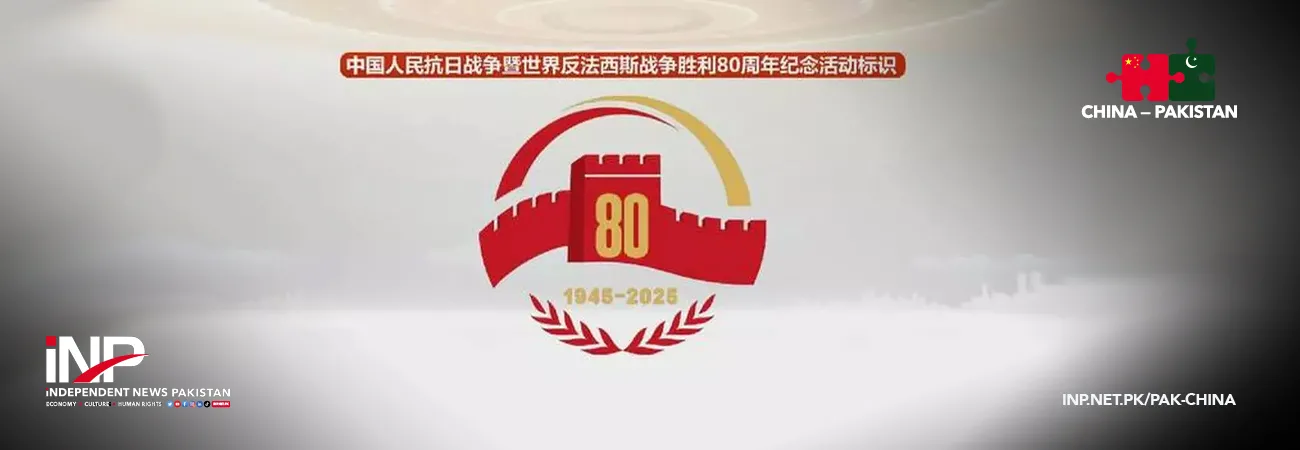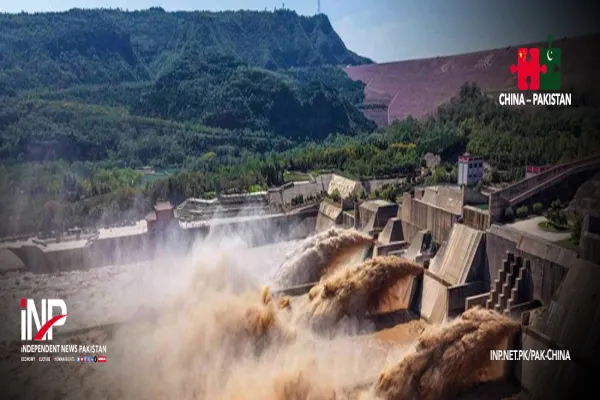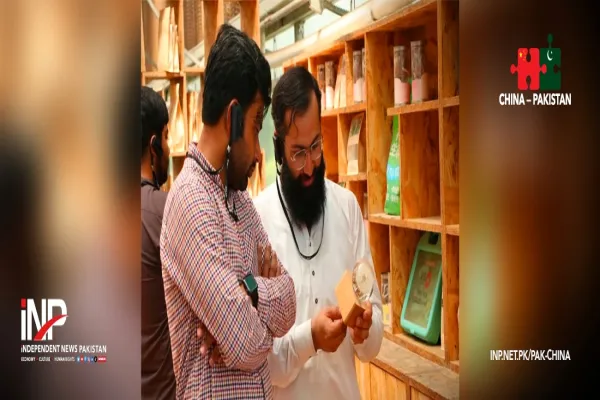i NEWS PAK-CHINA
By Yasir Habib Khan
The year 2025 is a watershed moment in human history because it marks commemoration of 80th anniversary of a phenomenal victory—the triumph of the Chinese People's War of Resistance Against Japanese Aggression, and the global victory in the World Anti-Fascist War as well restoration of Taiwan. The occasion comes up with many lessons to learn for peace, development and promising future for mankind in the length and breadth of world.
The gala day to mark China’s resilience in the face of imperialistic hegemony is all set to take place on 3th September with high-octane gathering in Tian'anmen Square and a military parade. Xi, also general secretary of the Communist Party of China Central Committee and chairman of the Central Military Commission, will deliver a speech at the gathering.
Since the epic event that marked the formal surrender of Japan in 1945, is overwhelmed with national pride, struggle and sacrifices, flurry of joyful and elaborate programs is being organized including seminars, pictorial exhibition, festivals and museum extravaganza in different parts of the world offering a glimpse of tales that 80 years ago, for 14 years and more, the Chinese people fought valiantly against Japanese militarism in WWII, sacrificed millions of civilians and military personnel.
Such package of shows tells the story how did Chinese people win the great victory of this devastating war and restore Taiwan from the illegal occupation of Japan, declaring the complete victory of the World Anti-Fascist War. The 80th anniversary of this historic victory is a magnificent prospect to peep into the torments and sacrifices made by countless heroes, both named and unnamed. It is a clarion call to honour the values of peace, cooperation, and mutual respect that underpin today's international order. China bills this anniversary as a reflection of its people's hardships and resilience, and a robust reaffirmation of its resolve to peace and prosperity.
The celebration of 80th anniversary of war of resistance aims to uphold the supremacy of historical truthfulness and maliciousness unleashed by Japanese politicians. Defying the facts, Japan government and its scholars have always tried to water down, distort, and delete from school and university topics on the history of Japanese aggression against China from school curricula. In this regard a ridiculous case is when one Japanese historian “Iwatani Nobuo”, who claims to have relied on a number of historical archives of the Japanese war on China to demonstrate the role played by the outbreak of the Second Sino-Japanese War in expanding the control of the Chinese Communist Party and paving the way for its eventual victory thanks to this Japanese aggression against China.
Despite Japan’s indulgence in ostrich syndrome, Chinese government always hopes that facing and accepting realities are the sole solution to stable and sustainable future. Last year, Member of the Political Bureau of the CPC Central Committee and Foreign Minister Wang Yi stressed when jointly attending the second meeting of High-Level Consultation Mechanism on People-to-People and Cultural Exchanges between China and Japan with Japanese Foreign Minister Takeshi Iwaya that Japan once again faces the question of history and morality at the important juncture marking the 80th anniversary of the end of World War II.
On August 15, Chinese Foreign Minister Wang Yi urged the Japanese government to face up to wartime history. He stressed that Japan must draw lessons from history in order to gain respect and avoid repeating mistakes, criticizing some forces in Japan for continuing to glorify aggression and distort historical facts. It is worth mentioning that the current international order was established on the basis of the outcomes of World War II. China was among the top builders of this order. As the world undergoes great changes unseen in a century, China stands on the side of historical progress and on the side of justice, and champions an equal and orderly multipolar world.
It practices true multilateralism, upholds the UN-centered international system, the international order underpinned by international law and the norms governing international relations based on the purposes and principles of the UN Charter, and promote a more just and equitable international order. Younger generations may ask what significance the war has on today's world, and the answers are myriad. While many ideological differences were put aside to defeat a fascist axis, the allied coalition showed the true potential of collective endeavor. A valuable lesson as the world confronts similarly unifying challenges: COVID-19, global recession, and climate change.
There are also many prescient lessons from the causes of the Anti-fascist War. The ravages of the First World War had led to unrealistic punitive treaties, certain to bread decent and lead to conflict. There was a collective feeling, that the price of war was too high, and peace should be maintained by appeasement, containment, and sanctions. The world lacked an effective system of engagement and arbitration.
Today, in an age of international designment, principally led by the United States, there is a similar risk the avenues of cooperation and dispute resolution are being barricaded. Vital institutions, such as the United Nations, are being diminished by a lack of engagement.
"Megaphone diplomacy" and military agitation is not the language of international diplomacy and can have dire consequences as history teaches us.
After the collaboration of the Anti-Fascist War, political disengagement was rapid as old differences arouse. A Cold War between the West and Soviet Union developed. This tension came close to all out war in 1962, during the Cuban Missile Crisis. It was not provocative rhetoric or increased military pressure that prevented war though, but political engagement at the UN. The UN, set up in the wake of the Second World War to prevent such crises arising. If nothing else, the 80th anniversary should be used as a remembrance of the past and a renewed commitment to prevent a repetition of such suffering.
The subsequent decades after the war also demonstrates that our enemies of the past do not need to be our enemies of the present or future. In Europe today, Germany is at the heart of the European Union and Japan is one of the United States' leading trade partners and political allies. Overcoming the oppression of fascist dictate meant that nations had the ability to forge their own paths and not be shackled or beholden to the ways of the past.
Credit: Independent News Pakistan (INP) — Pak-China









